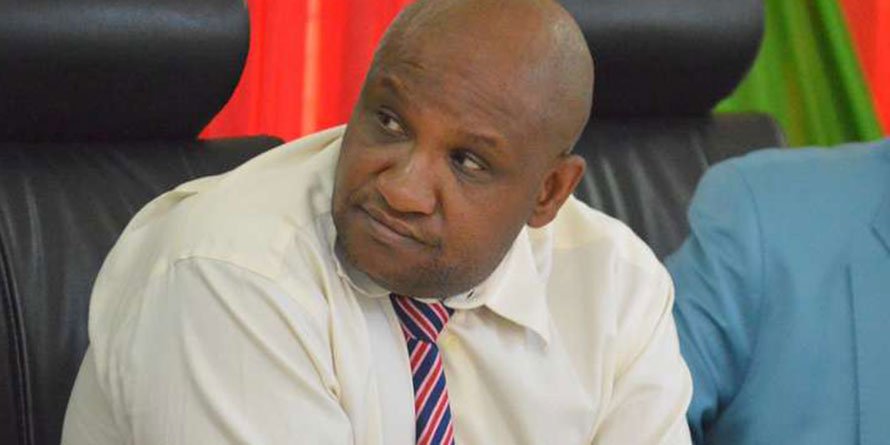KRA Commissioner General Githii Mburu. FILE PHOTO | NMG The Kenya Revenue Authority (KRA) will increase the taxes of at least 31 products, including fuel, bottled water, juice and beer in October, escaping the need to seek Treasury and Parliament approval in January for the increment.
The taxman will increase the costs of the products by at least 5.43 percent, which will be a blow to consumers already hurt by job cuts and unpaid leave in the wake of the Covid-19 pandemic.
Analysts and consumers expected the KRA to review the prices in January in line with a new law, which takes effect at the start of next year and requires the taxman to seek the approval of Treasury Cabinet Secretary and Parliament for the new inflation tax.
Under the current law, the KRA Commissioner-General only needs to issue a legal notice stating the adjustment for the new tax to become effective.
The tax increase will hit consumers hard as households and traders reel from the impact of the coronavirus disease, which has reduced purchasing power due to job cuts and movement restrictions, forcing businesses to cut down their activities.
“The Commissioner General will adjust the rates of excise duty using the average inflation rate for the financial year 2019/2020, as determined by the Kenya National Bureau of Statistics. The adjusted rates will be effective from 1st October 2020,” KRA Commissioner General Githii Mburu said in the notice.
The October review means that the KRA will unilaterally impose the new inflation tax, avoiding MPs who have been hesitant to approve new taxes on basic products like petrol.
The KRA will be required to seek the approval of the Treasury Cabinet Secretary before making the specific excise rate adjustment, and thereafter the legal notice will be taken to Parliament within seven days of publication for consideration.
Parliament will, within 28 sitting days of receiving the notice, decide whether to approve or reject the inflation adjustment under changes to the law made in June and which will apply from January 1.
The KRA reckons it will seek the approvals in the next round of review next year.
Inflation adjustment tax was introduced in 2018 and is seen as a means of protecting the government’s spending power from erosion by rising cost of living and avoid seeking MPs’ nod for higher retail prices.Super petrol was expected to increase by Sh1.12 at the pump as dealers’ inflation adjusted excise duty rises to Sh22.05 […]
